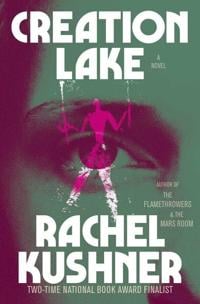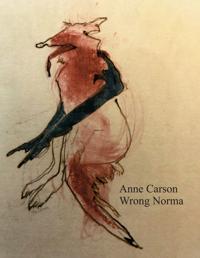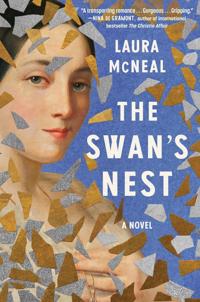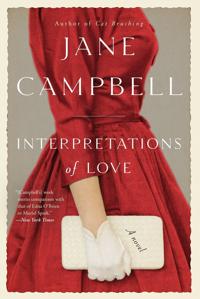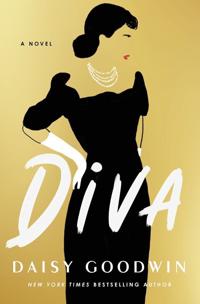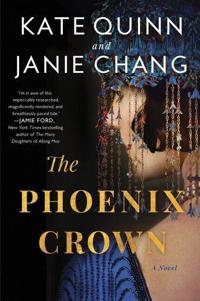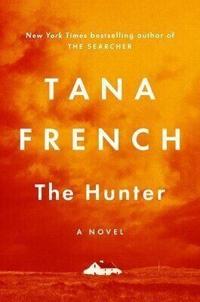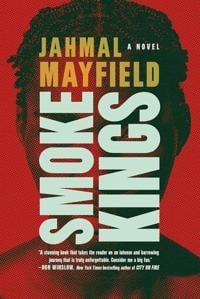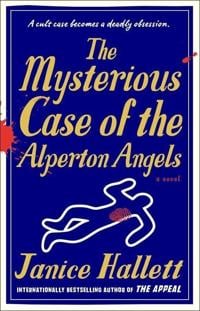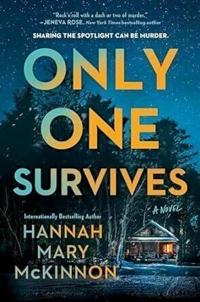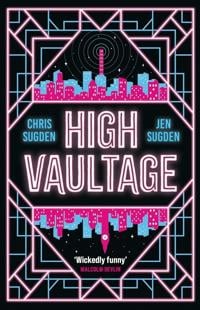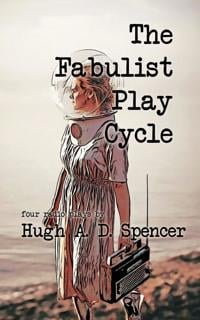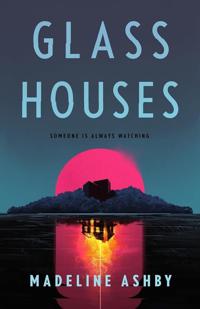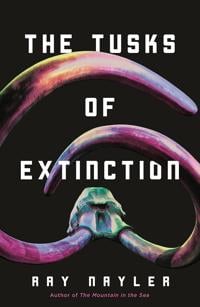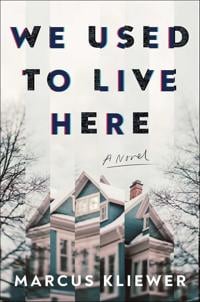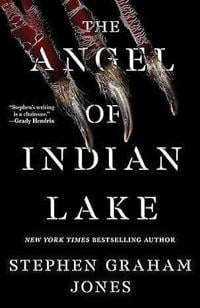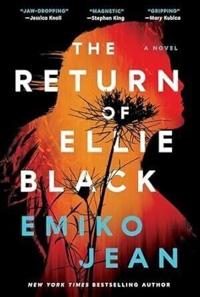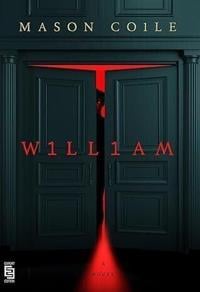Literary Fiction
Parade
by Rachel Cusk
Harper Perennial, $29.99
Reading “Parade” is like driving quickly in a tiny car up the side of a steep mountain. Cusk, the author of the Outline trilogy, switchbacks bracingly between multiple narratives — all about different artists named G — as she races past comforting fictions about motherhood and art on her way to something more true. Sentence by sentence, Cusk’s command is stunning. —Zak Black
Annihilation
by Michel Houellebecq
Farrar, Straus and Giroux, $40
Houellebecq has said that “Annihilation” will be his last novel. Like its predecessors, it offers a clear-eyed (if exaggerated) portrait of the emptiness of contemporary bourgeois life and the fragility of a decadent society. Unlike its predecessors, though, the novel works its way dreamily toward a surprisingly serene conclusion. Houellebecq here orchestrates his own authorial annihilation with uncharacteristic warmth. —Zak Black
“Annihilation,” by Michel Houellebecq, 544 pages, Farrar, Straus and Giroux, $40.
Creation Lake
by Rachel Kushner
Scribner, $39.99
One of the most exciting contemporary American novelists hits her stride in a book about international espionage, French social movements and Neanderthals. Kushner handles a bewildering range of topics with depth, clarity and gusto. The result is a wry thriller that manages to marry a fast-paced plot to an intricate investigation of perennial questions about that dubious creature, Homo sapiens. —Zak Black

“Creation Lake,” by Rachel Kushner, 416 pages, Scribner, $39.99.
Wrong Norma
by Anne Carson
New Directions, $26.95
This apparently ramshackle collection includes Carson’s first forays into short-story writing (“1 = 1” featured on the New Yorker Fiction podcast), an autobiography written by the sky, a cartoon about Martin Heidegger and Paul Celan, and some excellent short poems. Carson continues her restless exploration of what a book can be, holding it all together with her distinctive ironic wisdom. —Zak Black

“Wrong Norma,” by Anne Carson, 192 pages, New Directions, $26.95.
Historical Fiction
The Swan’s Nest
by Laura McNeal
Algonquin, $38
When Elizabeth Barrett — invalided for decades in her father’s home, where she’s treated with opiates for mysterious ailments — meets fellow poet Robert Browning, she’s determined to get well to live life on her own terms. By the time they secretly wed and leave London for Pisa in 1846, they’ve exchanged 573 letters. This irresistible page-turner is a gorgeous tribute to resilience and true love. —Janet Somerville

“The Swan’s Nest,” by Laura McNeal, 320 pages, Algonquin, $38.
Interpretations of Love
by Jane Campbell
Grove Press, $42.95
A polyphonic tale that richly imagines the interior lives of characters whose experiences are shaped by the Second World War. The perspective artfully shifts between Dr. Agnes Stacey, her uncle Professor Malcolm Miller and her one-time therapist Dr. Joseph Bradshaw. Rife with rumbling family tension and a startling revelation kept secret since 1946, this assured debut is as true as life itself. —Janet Somerville

“Interpretations of Love,” by Jane Campbell, 240 pages, Grove Press, $42.95.
Diva
by Daisy Goodwin
St. Martin’s Press, $39
In 1957, gossip columnist Elsa Maxwell introduces opera diva Maria Callas to shipping tycoon Aristotle Onassis, their ensuing affair lasting years. The engrossing story shifts between Maria’s professional life on stage and her personal one. When Onassis weds Jackie Kennedy, Maria is dining with director Franco Zeffirelli and acts the role of her lifetime: a woman unbowed by her broken heart. Told with tenderness and flair. —Janet Somerville

“Diva,” by Daisy Goodwin, 336 pages, St. Martin’s Press, $39.
The Phoenix Crown
by Janie Chang and Kate Quinn
William Morrow, $25.99
Feng Suling, an embroiderer, and Gemma Garland, a soprano with the Metropolitan Opera’s touring company, are thrown together in the chaos of San Francisco’s 1906 earthquake. Through a dangerously charming railroad magnate their paths cross, and they discover his penchant for stealing ornate collectibles, including the rare phoenix crown that disappears when he does. A whiplash narrative drive gilds this enlightening and immersive tale. —Janet Somerville

“The Phoenix Crown” by Kate Quinn and Janie Chang, 400 pages, William Morrow, $25.99.
Crime/Mystery
The Hunter
by Tana French
Viking, $25.99
“Whenever it stays hot for too long, I’m just waiting for things to get messy.” So says former Chicago cop Cal Hooper about a third of the way through French’s latest novel, and he won’t have to wait long. When Cal’s teenage protégé’s wayward father returns to the small Irish town of Ardnakelty with a money-making scam involving a wealthy Englishman and a rumoured vein of gold running underneath the land, Cal realizes trouble is afoot. This sequel to 2020’s “The Searcher” unfolds with deliberation, but that does not denude the interest or the effect of French’s narrative, the pleasures of which are located as much in the carefully wrought depictions of the town and its various colourful inhabitants as in the thriller elements. —Steven W. Beattie

“The Hunter,” by Tana French, 480 pages, Viking, $25.99.
Smoke Kings
by Jahmal Mayfield
Melville House, $19.99
A group of vigilantes (which takes its name from the work of noted civil rights leader W.E.B. DuBois) seeks retributive justice by kidnapping and extorting the descendants of slavers and others who engaged in anti-Black racism. When they accidentally murder the brother of a vicious white nationalist, the hunters become the hunted. Add in a racist white cop from Alabama also hot on their trail and the result is one of the most scorching thrillers in recent memory. Debut author Mayfield does not play it safe: all his characters are flawed, and he confronts his readers with uncomfortable questions about the nature of justice and the corrosive legacy of racial animus in the U.S. —Steven W. Beattie

“Smoke Kings,” by Jahmal Mayfield, 400 pages, Melville House, $19.99.
The Mysterious Case of the Alperton Angels
by Janice Hallet
Atria, $26.99
Playwright and screenwriter Hallett marshals all her talents for ventriloquism into this found-footage novel. She deploys WhatsApp messages, script pages, interview transcripts and archival files to tell the story of a true crime writer pursuing a cold case centred on the ritualistic murder and mutilation of three cult members who believed that a missing child is the antichrist. While the serpentine plot keeps the pages turning, it’s the bravura stylistic pyrotechnics that vault this one over most other thrillers to appear in the past 12 months. —Steven W. Beattie

“The Mysterious Case of the Alperton Angels,” by Janice Hallett, 448 pages, Atria, $26.99.
Only One Survives
by Hannah Mary McKinnon
Mira, $23.99
Oakville, Ontario’s McKinnon focuses on the commingled depth and acidity of female friendships in this story of an all-girl rock group whose van goes off the road in the winter, forcing the survivors to take refuge in an abandoned cabin where they start to turn on one another. McKinnon develops the central relationship, between band leaders Vienna and Madison, clearly and with nuance; the novel has much to say about the perils of ambition and the nature of fame in our celebrity-obsessed culture. A mid-novel twist throws the entire narrative askew, making readers question everything that has come before. It may not all pass the plausibility test, but the propulsive engine under the hood keeps this one humming right to the end. —Steven W. Beattie

“Only One Survives,” by Hannah Mary McKinnon, 400 pages, Mira, $23.99.
Sci-Fi/Fantasy
High Vaultage
by Chris Sugden and Jen Sugden
Gollancz, $36
A delightful steampunk fantasy that has a pair of detectives investigating reports of missing persons and strange bank robberies taking place in the overgrown megalopolis of London in an alternative 19th century. As with most steampunk adventures, the authors have a lot of fun imagining new and creative ways science and technology might have evolved; it’s a great story too. —Alex Good

“High Vaultage,” by Chris Sugden and Jen Sugden, 390 pages, Gollancz, $36.
The Fabulist Play Cycle
by Hugh A.D. Spencer
Brain Lag, $20
Spencer doesn’t just write SF books, but books about SF and its broader cultural significance and meaning. “The Fabulist Play Cycle” is a bit of both, being a collection of radio plays tracking the lives of a group of writers in America’s golden age of science fiction. The results are both entertaining and provocative, especially as they explore the close connection between fandom and cult behaviour. —Alex Good

“The Fabulist Play Cycle,” by Hugh A.D. Spencer, 388 pages, Brain Lag, $20.
Glass Houses
by Madeline Ashby
Tor, $36.99
The leaders of a Canadian tech start-up are trapped on an island whose only structure is a black cube of a glass house. As the techies begin being eliminated one-by-one, the damaged final girl reflects on the steps that brought her to this point. It’s a smart thriller that Ashby lets grow, taking the story in a lot of unanticipated directions. —Alex Good

“Glass Houses,” by Madeline Ashby, 272 pages, Tor, $36.99.
The Tusks of Extinction
by Ray Nayler
Tordotcom, $35.99
A timely science fable about a Russian scientist named Damira whose consciousness is uploaded into the matriarch of a herd of woolly mammoths that have been brought back from extinction. Nayler uses the story of Damira’s attempt to save the herd from poachers as a way to reflect on how we are all embedded in a world that isn’t just globalized in terms of international markets but in a way that links all life in a kind of universal mind. —Alex Good

“The Tusks of Extinction,” by Ray Nayler, 112 pages, Tordotcom, $35.99.
Horror/Thriller
We Used to Live Here
by Marcus Kliewer
Atria/Emily Bestler Books, $34.99
What begins as a strange home invasion takes a number of turns for the weird and terrifying in Vancouver writer Kliewer’s debut novel. While there’s been a lot of talk about the book’s origin (it began as a short story on a horror sub-Reddit), it reads like a master class in dread and slow-burning chills. —Robert Wiersema

“We Used to Live Here,” by Marcus Kliewer, 320 pages, Atria/Emily Bestler Books, $34.99.
The Angel of Indian Lake
by Stephen Graham Jones
S&S/Saga Press, $36.99
Unlike most of the film and fiction trilogies and series that shaped his writing, Stephen Graham Jones’ masterful Indian Lake trilogy builds strength upon strength until we arrive at this, its grand finale. Jade Daniels — former high school slasher freak, recent inmate — returns to Proofrock, Idaho to find the Lake Witch waiting for her. Gloriously bloody and profoundly moving, this is a sterling example of what horror can do. —Robert Wiersema

“The Angel of Indian Lake,” by Stephen Graham Jones, 464 pages, S&S/Saga Press, $36.99.
The Return of Ellie Black
by Emiko Jean
Simon & Schuster, $25.99
From the moment Ellie Black steps onto a forest path, having been missing for two years, Jean’s debut thriller never lets up. Black refuses to talk, even to Detective Chelsey Calhoun, whose sister disappeared in much the same manner decades before. Jean, who lives in Washington state, captures the constant foreboding and grey chill of the forests and hidden valleys of the Pacific Northwest, and the intricacies of the human heart. —Robert Wiersema

“The Return of Ellie Black,” by Emiko Jean, 320 pages, Simon & Schuster, $25.99.
William
by Mason Coile
G.P. Putnam’s Sons, $24
Toronto horror writer Andrew Pyper has created both a new name for himself and one of the most vicious, visceral horror novels of the year. William is an AI, created by agoraphobic engineer Henry, who has placed the AI’s consciousness into a partly constructed robot, as well as connecting him into the main controls of his smart home. Will things go wrong? Do you even have to ask? William is a slim, headlong rush into nightmare, from a truly dark imagination. —Robert Wiersema

“William,” by Mason Coile, 224 pages, G.P. Putnam’s Sons, $24.
This post was originally published on here



